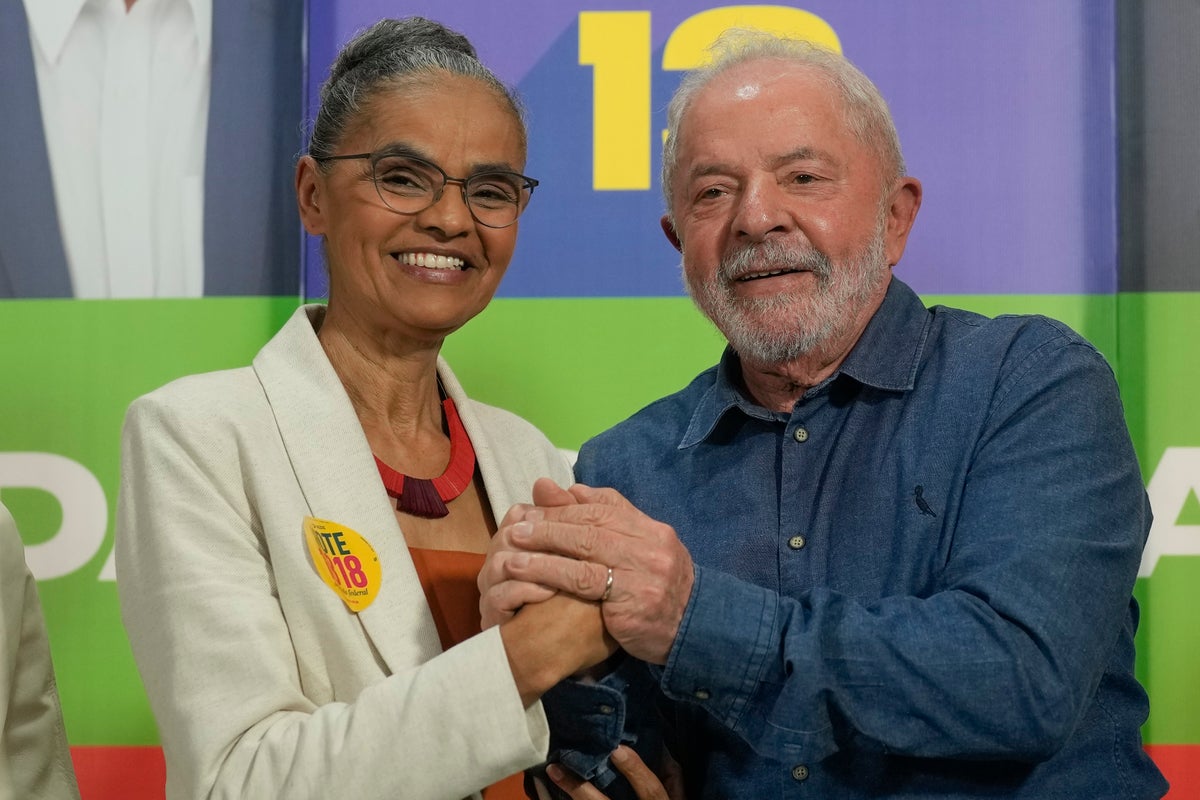
Brazil's President-elect Luiz Inácio Lula da Silva has named Amazon defender Marina Silva as environment minister for his incoming government, indicating he will prioritise cracking down on illegal deforestation.
Both attended the recent UN climate conference in Egypt, where Mr Lula promised cheering crowds “zero deforestation” in the Amazon, the world's largest rainforest and a key to fighting climate change, by 2030. “There will be no climate security if the Amazon isn't protected,” he said.
His choice of Ms Silva underscores that commitment — but the contentious pick may undermine his prospects for governability, given many agribusiness players – resent her. The resentment stems from her time as environment minister during most of Lula's last presidency, from 2003 to 2010.
Mr Lula also appointed Carlos Fávaro, a soybean producer, as minister of agriculture and Sonia Guajajara as Brazil’s first minister of Indigenous peoples.
Ms Silva was born in the Amazon and worked as a rubber tapper as an adolescent. As environment minister she oversaw the creation of dozens of conservation areas and a sophisticated strategy against deforestation with major operations against environmental criminals and new satellite surveillance. She also helped design the largest international effort to preserve the rainforest, the mostly Norway-backed Amazon Fund. Deforestation dropped dramatically.
But Mr Lula and Ms Silva fell out as he began catering to farmers during his second term and Ms Silva resigned in 2008.
Mr Lula appears to have convinced her that he has changed tack, and she joined his campaign after he embraced her proposals for preservation. In her own appearance at the UN summit, Ms Silva said Mr Lula’s administration would protect forests and lead the way in fighting climate change.
“Brazil will return to the protagonist role it previously had when it comes to climate, to biodiversity,” Silva told reporters at the summit.
That would be a sharp turnabout from the former president, Jair Bolsonaro, who pushed for development in the Amazon and whose environment minister resigned after national police began investigating whether he was aiding the export of illegally cut timber.
Mr Bolsonaro froze the creation of protected areas, weakened environmental agencies and placed forest management under control of the agriculture ministry. He also championed agribusiness, which opposes the creation of protected areas such as Indigenous territories and pushes for the legalization of land grabbing. Deforestation in Brazil’s Amazon reached a 15-year high in the year ending in July 2021, though the devastation slowed somewhat in the following 12 months.
In Egypt, Mr Lula said his administration would prosecute all crimes in the forest, from illegal logging to mining. He also said he would press rich countries to make good on promises to help developing nations adapt to climate change. And he pledged to work with other nations home to large tropical forests — the Congo and Indonesia — in what could be coordinated negotiating positions on forest management and biodiversity protection.
As environment minister, Ms Silva will be charged with carrying out much of that agenda .Ms Silva is also likely to face resistance from Congress, where the farm caucus next year will account for more than one-third of the Lower House and Senate.
Ms Silva and Brazil stand to benefit from a rejuvenated Amazon Fund, which took a hit in 2019 when Norway and Germany froze new cash transfers after Mr Bolsonaro excluded state governments and civil society from decision-making. The Norwegian Embassy in Brazil praised “the clear signals” from Mr Lula about addressing deforestation.
“We think the Amazon Fund can be opened quickly to support the government’s action plan once the Brazilian government reinstates the governing structure of the fund,” the embassy said in a statement to the AP.
After Ms Silva resigned in 2008, she quit Mr Lula’s Workers’ Party and became a fierce critic of him and his successor, Dilma Rousseff. Ms Silva and Mr Lula didn’t begin to reconcile until this year’s presidential campaign, finding common cause in defeating Bolsonaro, whom they deemed an environmental villain and would-be authoritarian.
Caetano Scannavino, coordinator of Health and Happiness, an Amazon nonprofit that supports sustainable projects, said Ms Silva “grew to become someone larger than only an environment minister.”
“This is important, as the challenges in the environmental area are even greater than two decades ago,” Scannavino said, citing growing criminal activities in the Amazon and increasing pressure from agribusiness eager to export to China and Europe. "Silva’s success is Brazil’s success in the world, too. She deserves all support.”







